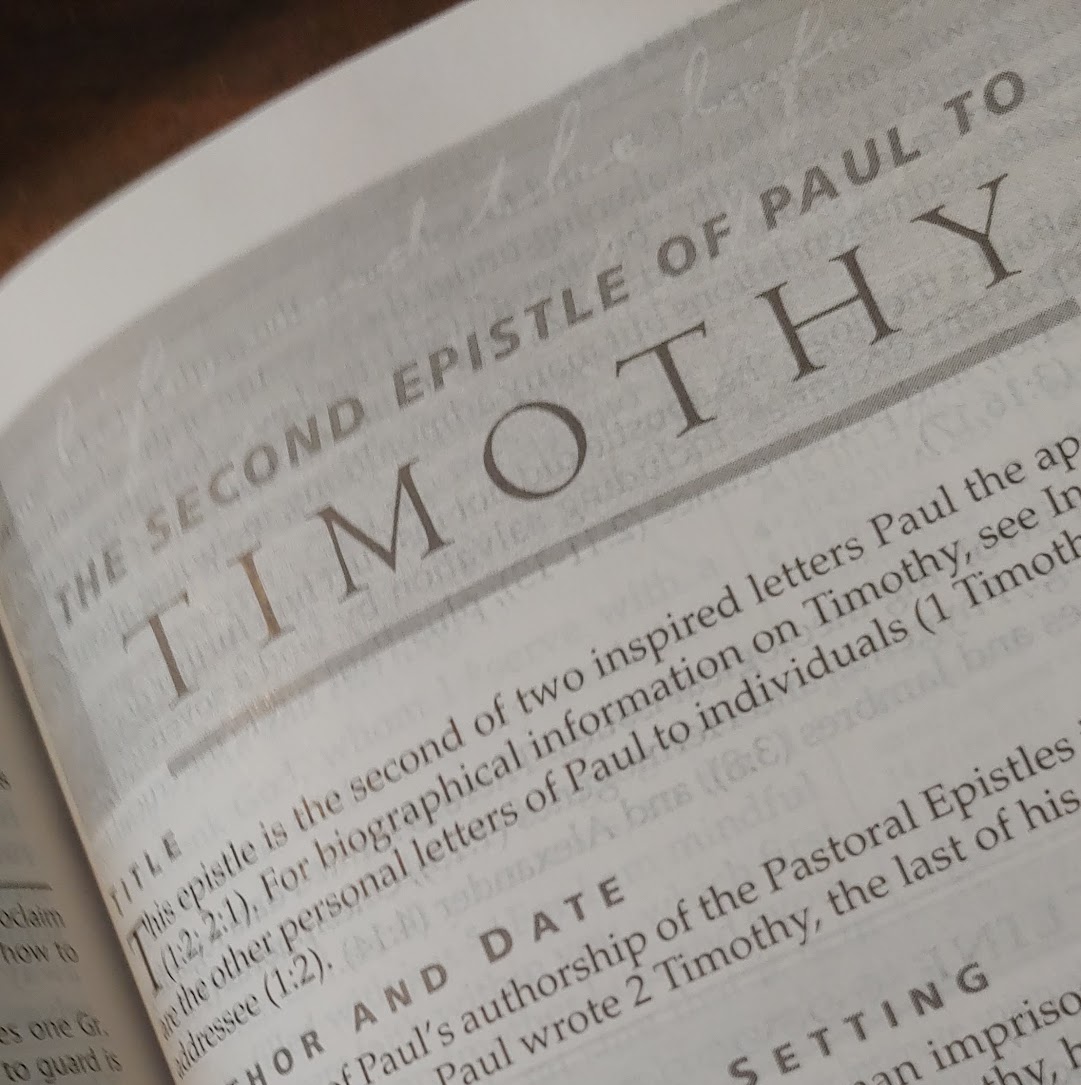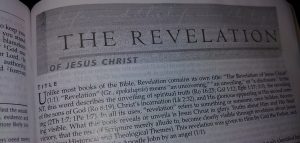
This is the second of two inspired letters that Paul wrote to his “son in the faith,” Timothy, which the text itself confirms in verses 1:2 and 2:1.
Some critics challenge Paul’s authorship of this particular letter as pseudopigraphal (means “false pen,” meaning that the person named as the author did not write it) on the basis of his declaration of apostleship. The argument goes that if it really was Paul, he wrote an intimate letter to his “son” who would neither have failed to recognize nor accept his assertion. To this I say that he mentions many other things in this letter that Timothy already knew as well. Look, I write a lot, and I say the same things all the time. It isn’t that hard to imagine that Paul said some familiar and well-known truths more than once. The reason for such criticism is something I have stated before, and it is simply the attempt of theological liberal people to challenge the inerrancy and sufficiency of Scripture. Sadly, many of these so-called theologians claim Christ as master, and yet will not believe His word. I guess it’s pretty obvious just from that statement how I feel about that.
To catch us up to what has been happening in Paul’s world that brings us to this point, Paul had been set free after his first imprisonment in Rome. He visited the churches in Asia again, there is some evidence he actually did reach the Iberian peninsula (Spain), and he was basically running around preaching Christ and planting churches and discipling people. About 5 or 6 years pass, and this letter (AD 66 or 67) finds Paul not in a rented house, but in Mamartine Prison, a disgusting, multilevel hole in the ground that has a spring at the bottom, and a big door that can be opened to let the main Roman sewer line flood the place to clean it out of filth and bodies, dead or soon-to-be dead, because this was a means of mass execution. That’s right, they could just drown the whole prison and then let the bodies wash out with the sewage. What a horrible way to die. It was not the only means that was used, however, and it was not so with Paul or Peter who was imprisoned there near the end of his ministry as well.
Mamartine Prison was also a place to keep war captives and political prisoners before their sometimes public executions. An example that some may be familiar with would include Vercingetorix, king of the Gaul after his defeat by Julius Caesar in 52 BC. As a Roman citizen, Paul’s sentence could not legally be crucifixion, and so was beheaded. Interestingly, the carcere publia was not used for long term incarcerations. It could be used for a drunk tank, but there were other places used for that in the city. Mamartine was typically a place that was not clean, people were chained to walls or each other, and sometimes were even starved to death. Today, there is a building that is over the prison, which houses two places of Roman Catholic ritual, but in Paul’s day was simply a covered hole in the ground, the only entrance to the prison. This is where Paul finds himself, facing execution, as he begins this letter.
For this reason, this letter has often been referred to as Paul’s last will and testament. It may have been written to timothy, his son in Christ, but it has many things to say to us. Think of what a last will and testament does today. It outlines the last thoughts and wishes of the testator, certainly, but in the main, it gives those people that are left behind direction to follow after the death of the testator. The takeaway from this is that Paul is outlining what he wants people to do to follow Jesus, his own Master and Saviour.
A careful reading of the letter itself tells us a number of things, but the first is that Timothy was perhaps weakening in resolve where he was stationed in Ephesus. Paul’s first letter to him there was filled with the same kind of language, and it tells me that Timothy had his hands full and in fact may have been overwhelmed by the task of straightening out the gathering there. Timothy was Paul’s chosen successor. In Paul’s thinking, Timothy just HAD to remain strong so he could carry on Paul’s work, even though his own apostolic ministry was ending. Timothy may have been waning in his own exercise, evidenced by Paul’s strong message in 1:6 to “kindle afresh” God’s gift within Timothy, to live in “power, love, and a sound mind” instead of fear (1:7), not to be ashamed of Paul and the Lord but to willingly suffer for the gospel (1:8), and to hold on to the truth (1:13, 14). Timothy may have been weakening in resolve under the pressures of the situations in the gathering at Ephesus, and because of the persecution of Rome and the world in general, and this moved Paul to encourage Timothy generally to “be strong” (2:1) and to continue to “preach the word” (4:2).
This letter is about what I would expect from a “father” to a “son” in the faith. There are strong encouragements, and about 25 or so imperatives (things that must be done) in the letter, but not a great deal of doctrinal instruction. Why not? Because Timothy would have known it and been familiar with how to communicate it and when. However, he alludes to several key theological ideas, including salvation by God’s sovereign grace (1:9, 10 et al.), the person of Christ (2:8, 4:1, 8), and perseverance in trial (2:11-13). Paul also wrote the extremely important verses of 3:16, 17 about the inspiration of Scripture.
So let’s get into the book!


